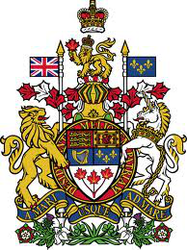On August 18, 2012, the House of Commons of the United Kingdom published a report about Libor, alleging that the Bank of England and the Financial Services Authority (FSA) their lack of diligences.
http://www.thejournalofregulation.com/spip.php?article1585

This is the drama of the summer and the case of the Mistigri: in what game drag one that will drop the player? Indeed, it pretends to discover that the purely declarative Libor system works by the good of those who declare, namely the banks. If one day a child said that the King is naked... This day was June 28, 2012, when the Financial Services Authority condemned the Barclays for manipulation of course. Since then, is the head, the bulk of support as the other? Thus, the FSA condemns. Well takes it, since the Government asked him to consider a reform of the Libor. On 10 August, the FSA makes first conclusions, to an increase in the powers of the FSA. But the English Parliament responded on 18 August, stating that if the FSA had a little more control this before, nothing would have occurred. Oh, what beautiful summer...
© thejournalofregulation
The British Government has assigned a Commission chaired by the Director-general of the Financial Services Authority (FSA) to reflect on the reform of the system of the Libor.
Libor is the rate of inter-bank loan calculated from the statements made by a bank pulls their intentions to buy or sale. It is so easy in a purely declarative, self-regulating, system operating manipulations of course, if reputation effects or a sense moral acute fails to give the actors.
Where Libor is a rate made by the banks but which relies of financial operations, its accuracy is crucial both in banking matters and financial matters, which shows the nesting of these two regulations, yet distinct in nature.
It is the financial regulator, the Financial Services Authority (FSA) who raised the Hare first, condemning the Barclays Bank on June 28, 2012. Doing so, by implication, it means that the banking supervision, which is responsible for the Bank of England, had been failing. This was echoed by the president of the Barclays who specifically accused the Vice President of the Central Bank of asked him to perform these manipulations to avoid systemic effects.
Summoned before the House of Commons, it radically denied the existence of such applications. So most of the pieces of the chessboard in place. There is only the judges. There is no doubt that they will come.
We find, therefore, banks, banking supervisor, the financial regulator, the Government and the Parliament. Who is responsible? Which should in the future its powers reduced? In the future to see its powers increase?
The Government instead trusted the financial regulator, because the disorders remarks made on the central banker, and requested a report. It makes it an interim report on 10 August, where it follows the need to increase the power of the courts... and the FSA.
It was well sense that on 18 August the House of Commons of Parliament published a preliminary report on the same subject and that it did not go in the same direction. It is not apparent collusion between commercial bank and central banker.
But the House of Commons is that there is an "urgent reform of banking supervision" in the United Kingdom. Parliamentarians believe indeed that the Bank of England was not to believe the bankers on floor. Of course, but it is the principle of the Libor to be declarative and retrospectively that self-regulation appears as the autocapture...
Above all, Parliament criticised the financial regulator. He believes that the Financiale Services Authority (FSA) should have better control of these very special agents on the financial markets are the banks. Perhaps beyond the hubris, the issue here is very clearly perceptible, the conclusion is always the same: more authorities, including law enforcement, control and coercion, regulators on operators

votre commentaire